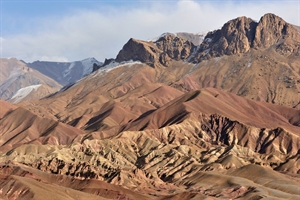1. Guard against insects
In the wilderness you are more likely to be living intimately with nature, and that includes biting and stinging insects. Unless you take adequate precautions, you may be exposing yourself to serious, potentially fatal illnesses such as malaria, tick-borne encephalitis, Japanese encephalitis, yellow fever, dengue fever, chikungunya and so on. Some of these are not vaccine-preventable, so follow https://www.canada.ca/en/public-health/services/publications/diseases-conditions/poster-mosquito-bite-prevention-travellers.html.
2. Keep clean
If you are camping it may be hard to find good quality washing facilities, which puts you at risk of GI illnesses. Take time to think about how you plan to keep clean and look at the different options for water purification.
3. Insurance
A rescue from a remote area may be incredibly expensive – particularly if a helicopter is needed. And on top of that medical treatment costs can run to thousands of pounds. For peace of mind, give your travel insurer a call and find out what coverage is needed for your expedition.
4. Take it slowly
A twisted ankle in Leamington Spa is an inconvenience, but a twisted ankle in the Tian Shan Mountains when walking is your mode of transport could potentially be a death sentence. Don’t rush, and don’t take undue risks. A trekking expedition is not a good time to be testing the limits of your jumping or climbing abilities. Think carefully about your capabilities and your limits before you take on a challenge, and examine your decisions carefully.
5. Know about altitude sickness
If you are in a mountainous area (above 2,500m), learn the signs of altitude sickness. Alberta Health has some information about Altitude Sickness. Mild altitude sickness will pass if you descend or acclimatise at the same altitude. However, people who suffer from mild altitude sickness may be vulnerable to the life-threatening high altitude cerebral oedema (HACE), a swelling of the brain caused by lack of oxygen.
There is medication available to treat altitude sickness, but it is not a substitute for acclimatisation or descent. Ask your travel health advisor for details and for more information about altitude sickness.
6. Carry medical supplies
Carrying your own medical supplies will mean you have everything you need to deal with a medical emergency. Bringing your own sterile set will protect you from blood-borne diseases and also mean that you don’t put pressure on scarce local resources. See Global Travel Clinics blogpost about medical kits for more details.
7. Vaccinations for adventure travellers
Six to eight weeks before you leave, make an appointment with a travel health nurse and tell them about your travel plans. They can recommend vaccinations such as hepatitis A and typhoid, which will protect you from a couple of unpleasant GI illnesses. They can also advise about malaria prophylaxis and shots against rabies, yellow fever, tick-borne encephalitis and Japanese encephalitis. If your travel plans are complex, take advantage of Global Travel Clinics’ extended appointments and get your travel vaccines.


Book Online